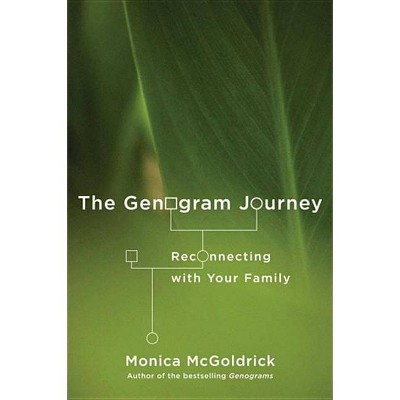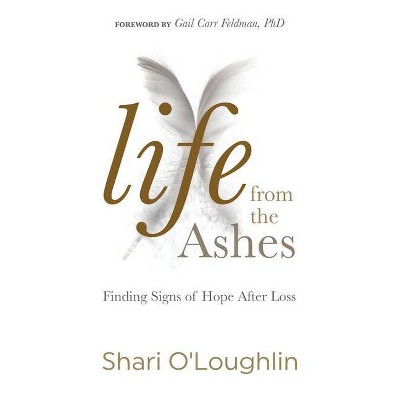Loving to Survive - (Feminist Crosscurrents) by Dee L R Graham (Paperback)

Similar Products
Products of same category from the store
AllProduct info
<p/><br></br><p><b> Book Synopsis </b></p></br></br><p><b>A selection of insights into the relationship between men and women</b> <p/>Have you wondered: Why women are more sympathetic than men toward O. J. Simpson? Why women were no more supportive of the Equal Rights Amendment than men? Why women are no more likely than men to support a female political candidate? Why women are no more likely than men to embrace feminism--a movement by, about, and for women? Why some women stay with men who abuse them? <i>Loving to Survive</i> addresses just these issues and poses a surprising answer. Likening women's situation to that of hostages, Dee L. R. Graham and her co- authors argue that women bond with men and adopt men's perspective in an effort to escape the threat of men's violence against them. <p/> Dee Graham's announcement, in 1991, of her research on male-female bonding was immediately followed by a national firestorm of media interest. Her startling and provocative conclusion was covered in dozens of national newspapers and heatedly debated. In <b>Loving to Survive</b>, Graham provides us with a complete account of her remarkable insights into relationships between men and women. <p/> In 1973, three women and one man were held hostage in one of the largest banks in Stockholm by two ex-convicts. These two men threatened their lives, but also showed them kindness. Over the course of the long ordeal, the hostages came to identify with their captors, developing an emotional bond with them. They began to perceive the police, their prospective liberators, as their enemies, and their captors as their friends, as a source of security. This seemingly bizarre reaction to captivity, in which the hostages and captors mutually bond to one another, has been documented in other cases as well, and has become widely known as Stockholm Syndrome. <p/> The authors of this book take this syndrome as their starting point to develop a new way of looking at male-female relationships. <b>Loving to Survive</b> considers men's violence against women as crucial to understanding women's current psychology. Men's violence creates ever-present, and therefore often unrecognized, terror in women. This terror is often experienced as a fear for any woman of rape by any man or as a fear of making any man angry. They propose that women's current psychology is actually a psychology of women under conditions of captivitythat is, under conditions of terror caused by male violence against women. Therefore, women's responses to men, and to male violence, resemble hostages' responses to captors. <p/> <b>Loving to Survive</b> explores women's bonding to men as it relates to men's violence against women. It proposes that, like hostages who work to placate their captors lest they kill them, women work to please men, and from this springs women's femininity. Femininity describes a set of behaviors that please men because they communicate a woman's acceptance of her subordinate status. Thus, feminine behaviors are, in essence, survival strategies. Like hostages who bond to their captors, women bond to men in an effort to survive. <p/>This is a book that will forever change the way we look at male-female relationships and women's lives.</p><p/><br></br><p><b> Review Quotes </b></p></br></br><br>Dee Graham clearly illuminates the connections between Stockholm Syndrome, the production of feminine behaviors, and the entire concept of heterosexuality. Her conclusions are frightening, breathtaking, and extremely provocative. This book is compelling reading for any feminist intellectual or activist, any female victim of violence who is searching for meaning in her own behavior, and all workers in the area of violence against women.--Marjorie Whittaker Leidig, former Clinical Director, Battered Women's Research Center, Denver, CO<br><br>It is a great puzzle why so many women say they are not feminist, why so many maintain loyalty to men of their own class and race rather than women of other classes and races not to mention women of their own class and race, why so many women don't feel oppressed. Dee Graham's impressive scholarship brings us back to a basic element of women's material condition: we live in a society in which men are violent and consider the use of violence an appropriate means of dealing with difference. Sure to become a classic, Loving to Survive is a fascinating compendium of studies with a long over- due analysis explaining the persistence of femininity, heterosexuality, and women's love of men.--Sarah Lucia Hoagland, author of Lesbian Ethics: Toward New Value<br><br>Loving to Survive may be the most controversial--and most important--book written during the past two decades. In asserting their theory, the authors ask readers to re-consider virtually all that has been deemed `true' about relationships between men and women. Such a dramatic paradigm shift will challenge most readers. Whether the reader likes or dislikes this book, one thing seems certain: it will generate dialogue that will surely engage people both intellectually and emotionally.--Donna M. Stringer, feminist author and teacher and President, Executive Diversity Services Inc.<br><br>Sure to spark controversy.-- "Feminist Bookstore News"<br><br>The most important book on the psychology of women in this century. Reading this book is both a personal and intellectual journey. Loving to Survive is an illumination both of abused women and every woman's experience.--June Peters, author of The Phoenix Program<br>
Price History
Price Archive shows prices from various stores, lets you see history and find the cheapest. There is no actual sale on the website. For all support, inquiry and suggestion messagescommunication@pricearchive.us




















